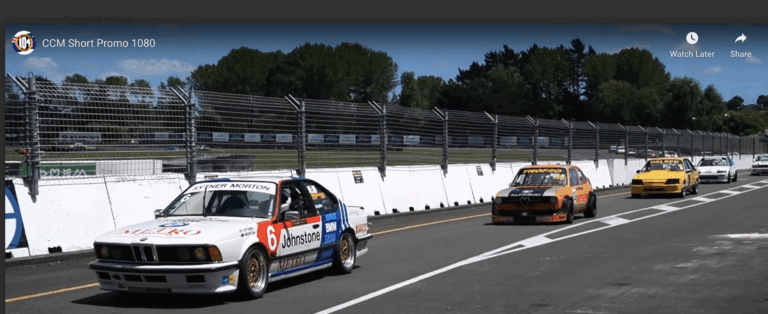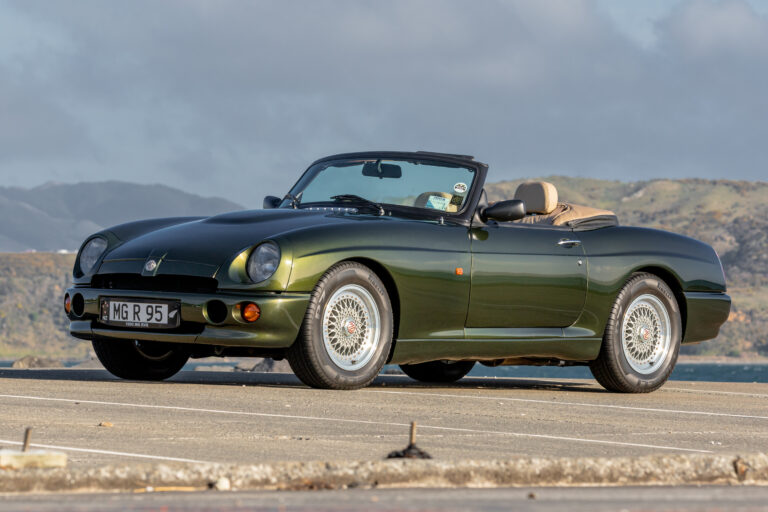data-animation-override>
“Published in NZV8 Issue No. 91”

Okay, so maybe it’s not true that he’s owned nearly every Camaro in the country, but he’s had plenty more Camaros than we can count, or that he can remember. A constant tinkerer, he’s always got a project on the go, and if it’s not a Camaro, it will soon be sold or swapped for one. Despite his somewhat unhealthy obsession for the Chevrolet icons, he’s not a one-trick pony, instead, he’s owned a bunch of different cars over the years, including a couple of hot rods, although none of the previous rides stack up to this one.
A friend of Shane’s actually started this build, and after things got a bit stressed between the original owner and builder, the unfinished project was parked for a few years. Always one looking for an opportunity, Shane took the chance to buy the car and see it through to completion. Little did he know exactly how much of a financial investment that decision would take, or how many grey hairs he’d gain along the way.
While it seemed like the hard work was done, with the chassis having being built, and a custom front end and a Corvette-style rear fitted, the reality is there was still plenty of work to be done. To help out on the bits Shane couldn’t do himself, he turned to long-time car builders Colin Willoughby and Steve Morrow, who spent plenty of time over the next two years seeing it through to completion.

The vision for the car was for it to be along the same lines as a well known American hot rod called Afterburner, hence the swoopy stance, sitting on big and little tyres together with the impressive and standout two-tone orange-and-gold paintwork. It’s a good look, and really suits the lines of the Deuce Customs built body. The more you look at the body, the more custom touches you’ll find, such as the doors being radiused to match the boot lid and the sides of the hood now wearing hundreds of custom louvres. The hood itself is a work of art. Created from a single sheet of aluminium, and tirelessly formed into a perfectly shaped piece, we can only imagine the hours involved in creating it. The same goes for the grille, made up of hundreds of polished bars. It’s the small touches such as this, which saw the cost of the build spiral, but it’s also what sets it apart from the many other fibreglass cars out there.
The plan for the build, in Shane’s mind at least, was for a car that drove like a new one, both in terms of performance, road holding and comfort. What he was after was something not that dissimilar from a late-model Commodore, which he just happened to have as a daily driver at the time. With this in mind, an LS1 was sourced from a VY R8 along with matching four-speed auto. The power alone wouldn’t make the car what he wanted, for that it needed creature comforts, like air conditioning, which has been taken care of by a Vintage Air set-up, complete with billet serpentine belt system. After adding electric windows, and a full fit-out of Dynamat to keep the heat and noise out, things were starting to take shape.

For a small car that’s been chopped so heavily, there’s a surprising amount of room inside, even for tall, lanky chaps like Shane. Some of this has to do with the choice of seats, and some is just due to the well thought-out nature of the build. Sure, the handbrake may not be the easiest to reach whilst driving (not that you should be doing that anyway), but unlike many cars like this, it doesn’t get in the way either.
When it came time for paint, Steve Levine was approached and given a brief of the look Shane was after. With the same care and attention taken on the underside and chassis of the car as the top side, it’s an impressive sight, especially when mixed with all the chromed and polished suspension components.
That same high level of workmanship was recently carried over to the interior, where Kelly and the team at Stitches Upholstery worked their magic in black leather. The detail work on the interior consumed plenty of hours, but not wanting to cut corners, the same look has been carried through to the custom boot fit-out too.
The smell and feel of the fresh leather add to the late-model appeal of the vehicle, and not being one for retro styling, Shane managed to include a few high-tech appointments inside too. Included in these is the rear vision mirror, which doubles as a gear indicator amongst other things, and the assortment of white-faced Auto Meter gauges.
Many of you will have probably seen the car for sale on the internet, and may be asking why on earth you’d build something like this, and then want to sell it? Well, once again, Shane’s got his heart set on a muscle car, one he can play with in the garage at home, and one that he’s not scared of damaging with his heavy right foot and appetite for burning rubber. In reality, he admits the car was probably always going to be too good for him, but it was a dream to own something like this, and now he’s achieved it, he’s happy to move it on for someone else to enjoy. And while the price may scare a few people off, chances are, if they know what they’re looking at, they’ll see that it couldn’t be replicated for what he’s asking, so while it’s still a big chunk of change, you’re certainly getting what you pay for. And as anyone who’s built a car will tell you, perfection comes at a price.
1933 Ford three-window coupe replica specs
Engine: 2002 HSV R8 LS1, Corvette in-tank pump, MSD coils, custom stainless exhaust, SRRC polished headers, custom radiator, custom airbox
Driveline: GM 4L60-E transmission, Corvette Dana 60 diff, 4.11:1 gears
Suspension: QA1 coilovers, custom arms, Lo-Boy front end
Brakes: Wilwood calipers
Wheels/tyres: 15- and 17-inch Budnik Trilogy rims, 215/60R17 and 195/50R15 tyres
Exterior: Four-inch roof chop, custom hinged number plate, custom grille, custom paint
Interior: Full leather retrim, Dynamat, Budnik steering wheel, Borgeson steering column, Lokar shifter, Lokar handbrake, Auto Meter gauges, Pioneer audio
Chassis: Rods by Reid, boxed, American Stamping rails
Performance: Untested
Driver profile
Shane Ushaw / Jasmine Ushaw
Age: Still 21
Occupation: International man of mystery
Previously owned cars: Nearly every Camaro in NZ
Dream car: A cheaper one!
Why the coupe? Rocks in my head
Build time: Two years
Length of Ownership: Four years
Shane thanks: The boys at Comtech, Kelly and team at Stitches Upholstery, Steve Levine, and the bank
Words: Todd Wylie Photos: Adam Croy


